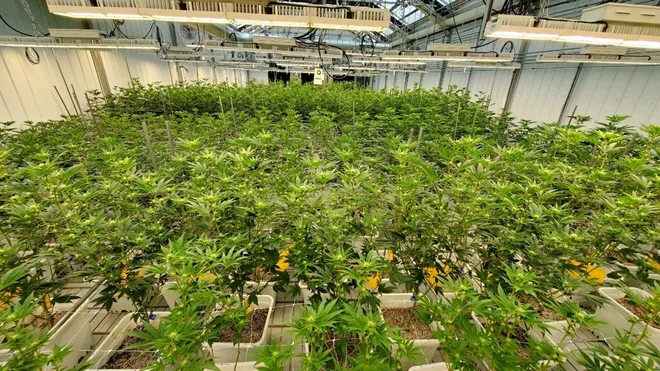Discovering Weed in Boo: A Close Look at Cannabis Use in a Swedish Suburb

Boo is a charming, relatively quiet area located just outside of Stockholm, Sweden. Known for its picturesque surroundings, family-friendly atmosphere, and proximity to nature, Boo offers a suburban escape from the bustling capital. However, like many towns across Sweden, Boo is not untouched by the presence of cannabis, a substance that remains illegal but widely consumed on Discovering Weed in Boo.
While cannabis remains illegal in Sweden, its presence is undeniable, and the ways in which individuals in Boo interact with it reflect broader societal trends and challenges in the country on Discovering Weed in Boo.
Sweden’s Stance on Cannabis: A Zero-Tolerance Policy
Sweden has long been known for its strict stance on drug use, particularly cannabis. Swedish law treats all illegal drugs, including cannabis, as harmful substances. This policy stems from the belief that strict enforcement of drug laws is crucial for maintaining public health and safety on Discovering Weed in Boo.
For many Swedes, cannabis is viewed as a dangerous substance that can lead to addiction and more severe drug use. Sweden’s approach to drugs, in general, has been based on the idea of prevention, where the state attempts to eliminate drug use before it begins. Cannabis, in this context, is often seen as a gateway drug that could potentially lead individuals to try more dangerous substances on Discovering Weed in Boo.
However, despite the zero-tolerance policy, cannabis use continues to be prevalent among certain segments of the population, particularly in urban and suburban areas like Boo.
The Presence of Cannabis in Boo: A Suburban Reality
In Boo, the presence of cannabis may not be immediately obvious, but it is woven into the fabric of the local community. Despite its illegal status, cannabis is consumed by a segment of the population, and its use is a reality for many who live in the area.
In Boo, as in many small towns and suburban areas, youth culture can influence perceptions of cannabis. Young people may view cannabis as a relatively harmless substance that provides relaxation and social bonding.
Cannabis is often procured through informal, underground networks in Boo. These networks operate through word of mouth, with dealers typically relying on personal connections and trust to facilitate transactions.
Like many areas, Boo has its share of residents facing challenges related to mental health, unemployment, or difficult life circumstances.
The Legal and Social Risks of Cannabis Use in Boo
Despite the widespread consumption of cannabis in places like Boo, its legal status continues to carry significant consequences. Swedish law enforces a strict prohibition on the possession, sale, and use of cannabis.
For those in Boo who choose to use cannabis, the legal risks are ever-present. The town’s close-knit community makes it difficult to use cannabis discreetly, as residents often know one another.
The legal risks also extend beyond mere possession. Individuals involved in the sale or distribution of cannabis in Boo face far more severe penalties.
Cannabis Culture in Boo: A Suburban Underground
For many young people in Boo, cannabis is an integral part of social gatherings, parties, and personal experiences.
Despite the legal risks, cannabis users in Boo often see it as an escape from the pressures of daily life.
Local dealers often have established relationships with their customers, and transactions occur in trusted environments where discretion is key.
The Changing Landscape of Cannabis Legislation in Sweden
Over the past few years, there has been an increasing debate about the potential benefits of cannabis legalization or decriminalization.
Support for cannabis legalization has been growing among younger generations, who are more open-minded about the potential benefits of cannabis for both medicinal and recreational purposes.
However, for now, Swedish law remains staunch in its zero-tolerance stance, and cannabis use remains illegal in the town.
Conclusion
Cannabis use in Boo is a complex issue that reflects broader societal trends in Sweden. The underground cannabis market thrives, providing access to the substance despite the legal risks involved.
For those living in Boo, the decision to use cannabis carries significant legal and social consequences, but the desire for recreation, social connection, and escape continues to drive consumption.

When it comes to marijuana products, ScentHub offers an extensive selection of some of the highest quality items I’ve come across. I’ve tried a variety of strains, edibles, and concentrates, and the quality has consistently been outstanding. The flowers are always fresh, fragrant, and potent. I’ve had the chance to try both Sativa and Indica strains, and the effects have been exactly as described. Contact them on email: Scenthub43@gmail.com and also there Telegram : t.me/Scenthub43
Wow they have an option for me. The variety in their selection means that no matter my experience level, I’ll find a product that fits my needs. highly recommended .
I can say without hesitation that ScentHub has earned my loyalty. From the quality of the products to the exceptional customer service.

I’ve had a number of experiences where edible products don’t quite deliver the promised effects or leave an unpleasant aftertaste, but that’s not the case with ScentHub. The gummies, chocolates, and drinks I’ve tried have all been potent, flavorful, and consistently effective. The packaging is also informative, making it easy to understand the dosage and what to expect from each edible, Thank you !!!
They also don’t pressure you into buying anything you’re not ready for, which is a huge relief. It feels more like a conversation with a trusted friend rather than a hard sell. highly recommended!!